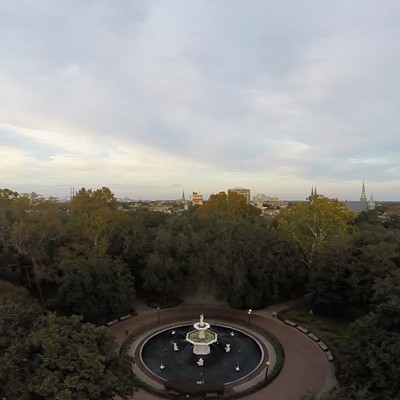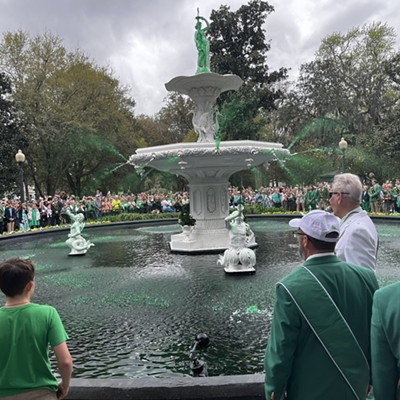From trash to treasure
There is a delegation of Swedish public officials and business people visiting Savannah this week from the city of Boras. The group is here to discuss shared economic development opportunities with officials from the City of Savannah, the Port Authority, and local business people, including giving a seminar on “waste to energy” technology they’ve developed.
The “waste to energy” program takes household waste and converts it to energy, including harnessing methane, which fuels public transportation in Boras. The technology not only reduces the amount of trash that ends up in landfills, but also generates revenue for the city.
The project is so successful that only about four percent of domestic waste in Boras is sent to the landfill, according to a 2007 report done by the Technical Research Institute of Sweden.
“It’s a neat way of preserving the environment while making money off people’s waste and looking at the possibility of starting that discussion in Savannah,” says Bridget Lidy, who was among a group of Savannah officials and staff who went to Sweden last year.
Although international travel by council members continues to be a hot button issue during the recession, this visit from the Swedes, and any economic prospects it creates, is a direct result of a trip taken to Sweden last year by City Council members Larry Stuber and Mary Ellen Sprague along with several City staffers.
Getting geeky in Savannah
In two fun developments on the local tech front, the Georgia Historical Society (GHS) has a new web app to make finding historical markers more fun, and the City of Savannah is hosting a new podcast to share news.
Last month, the GHS unveiled it’s new historical marker web app, developed by local firm Smack Dab.
The GHS spent a year documenting and mapping all the historical markers in the state in order to create the app, which works with Google Maps to show where all the markers are.
The map is searchable by keywords – like “Johnny Mercer” or “Civil Rights” – and shows relevant markers across the state (map.georgiahistory.com). It will also help you plot driving directions based on markers, so the next time you hit the road, you can stop along the way and learn about state history. There’s an iPhone app coming soon as well.
Last week, the City of Savannah’s Public Information Office unveiled its newest tech endeavor, a podcast that you can subscribe to via iTunes or an RSS feed. The podcast, which will be released twice a month, features news, events coverage and more about life in Savannah. The first episode, which is available now, discusses water restrictions, the Savannah Youth Council and free concerts in Johnson Square.
For more info, visit the city website (www.savannahga.gov).
The value of higher education
As if being a historically significant educational institution wasn’t valuable enough, Savannah State University released a report last week detailing its local economic impact in 2009.
According to the study, which was conducted by Selig Center for Economic Growth, SSU had a local impact of $136 million on the local economy, a $9 million increase over 2008.
The study found that the university helps create over 1,200 full– and part–time jobs locally, with 427 on–campus and more than 800 in the private sector, supporting the institution and its students.
“Savannah State is an educational and economic asset to the area,” says Dr. Earl G. Yarbrough Sr., President of SSU, in a release announcing the study’s results. “The report emphasizes the growth, vitality and financial stability that Savannah State brings to the region during this period of economic recovery.”



























